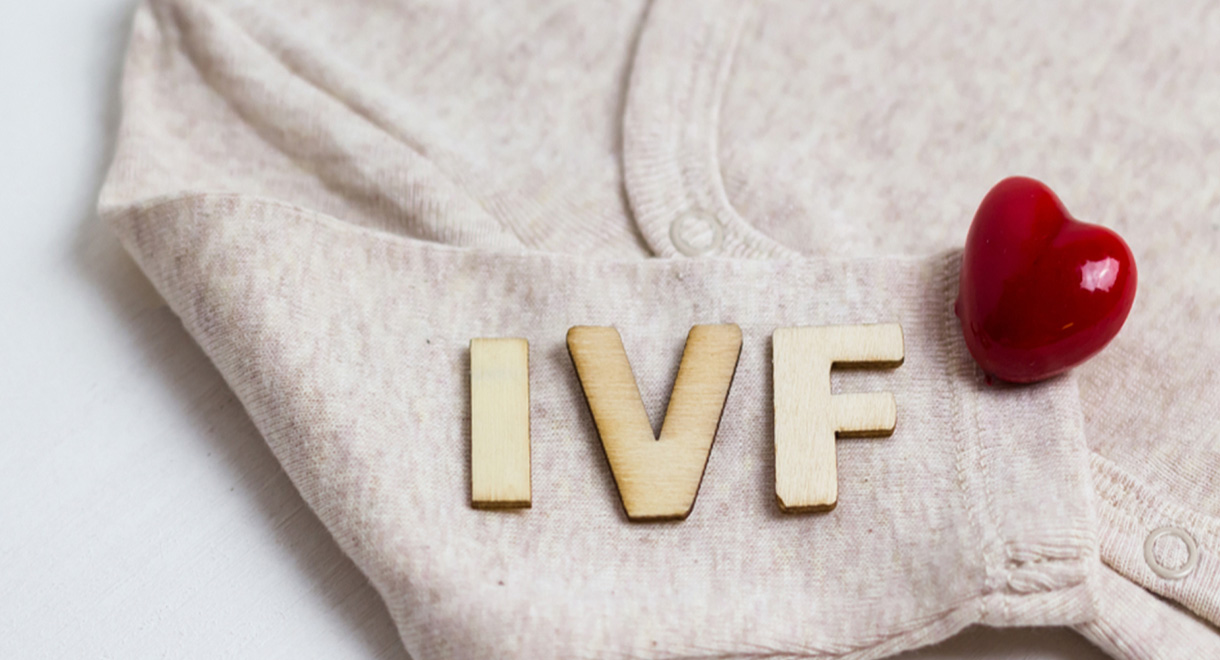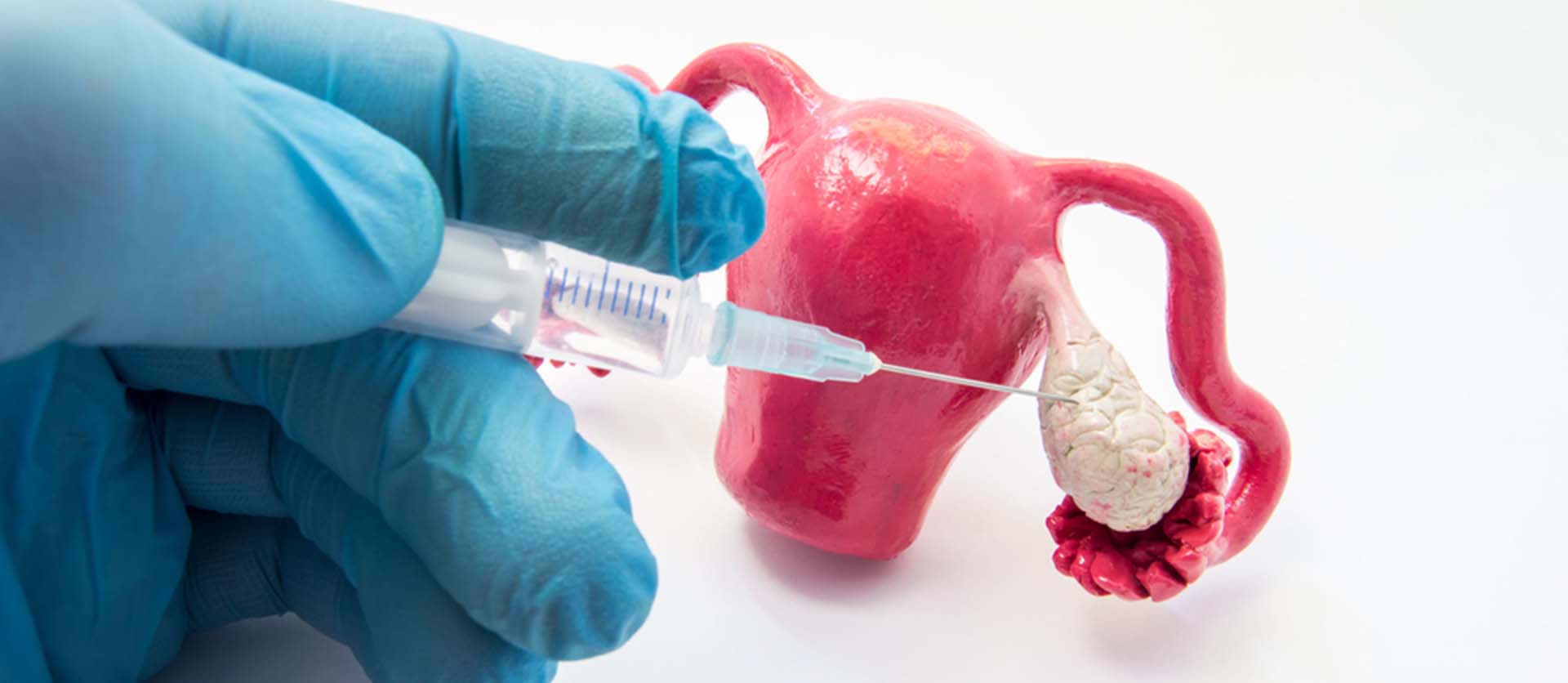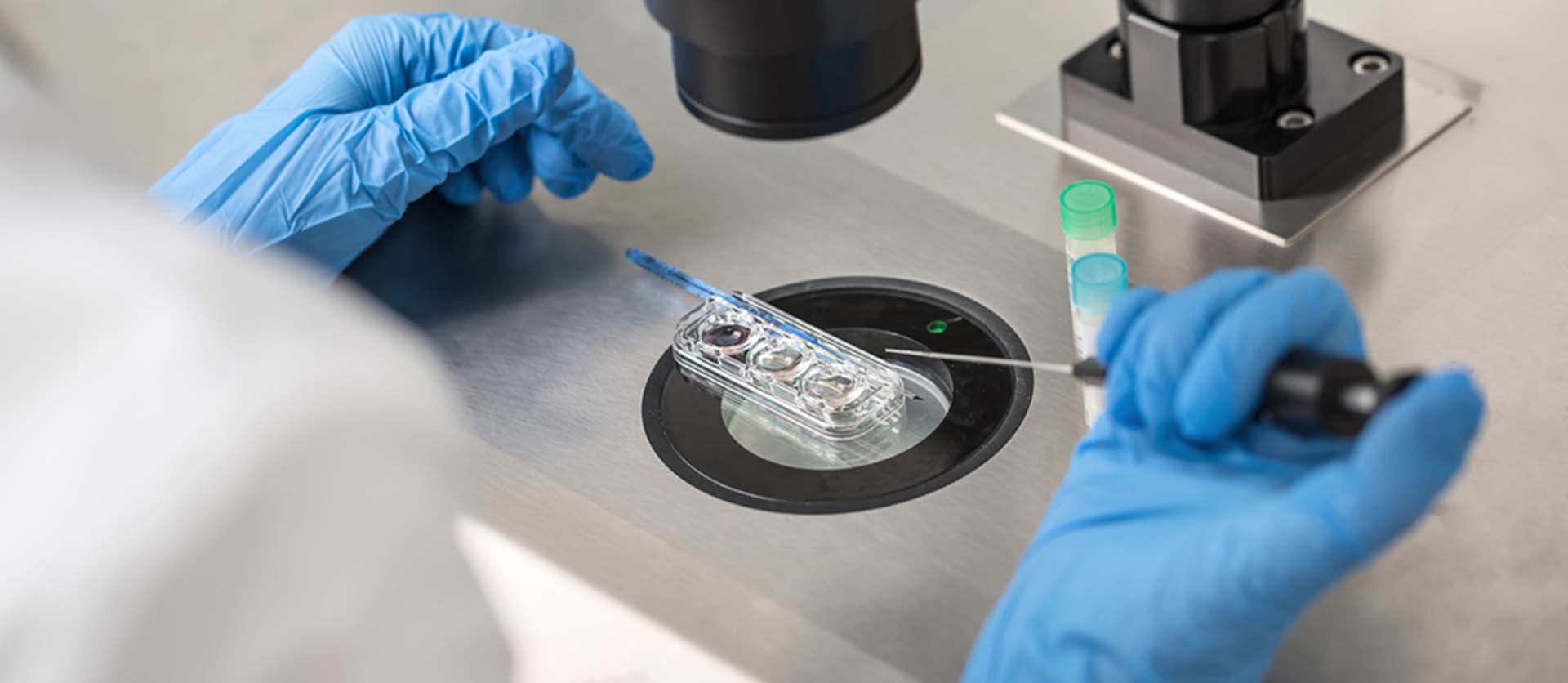Invitro Fertilization

IVF is an acronym for In-Vitro-Fertilization one of the assisted reproductive technology (ART) for infertility treatment. IVF can be explained as a medical procedure whereby an egg is fertilized by sperm in a test tube or elsewhere outside the body, so as to get pregnant. It involves the process of fertilization by extracting eggs, retrieving sperms sample and combing both manually in the lab.
What Causes of Infertility can IVF Treat?
IVF can be preferred by partners who have been diagnosed with infertility caused due to
- Lower sperm counts in men.
- Endometriosis in female partner. Endometriosis i.e a disorder in which tissue that usually outlines the uterus, develops outside the uterus.
- Uterus or fallopian tubes disorder
- Difficulties in ovulation
- Antibody problems that harm sperm or eggs
- Weak sperms that fail to penetrate or survive in the cervical mucus.
Who Prefers doing IVF?
IVF must never be considered as the first option for infertility treatment, instead must be given priority only if other treatment option like medication or artificial insemination fails. People who have already tried and failed in other infertility methods should prefer going for IVF.
What is the Treatment Process for IVF?
IVF process may involve more than one IVF cycle & each cycle may take at least 2 weeks. IVF cycle has few primary steps like ovulation induction, egg retrieval, fertilization, embryo transfer

In the start of the IVF cycle, synthetic hormones are used for ovary stimulation to produce multiple eggs. Multiple eggs are produced instead of a regular one egg (natural process) to improve the chances of pregnancy. Multiple eggs are produced because some eggs fail to fertilize or develop, usually after fertilization. This step may require the consumption of varied medications for ovarian stimulation & oocyte maturation. Medicine may also be prescribed to prepare the lining of your uterus and prevent premature ovulation To make sure that your eggs are ready and healthy enough to retrive, doctor may suggest undergoing tests like vaginal ultrasound and blood test.
At times IVF cycle is canceled before egg retrieval owing to various reasons mentioned below
- Premature ovulation
- Too less or too many numbers of follicles developing which may cause ovarian hyperstimulation syndrome
- Unrecognized medical issues

Egg retrieval should be done before ovulation and 34 to 36 hours prior to the last medication procedure. Whole egg retrieval procedure will be carried out only after the patient is sedated through veins & given pain relief medication sometimes. Transvaginal ultrasound aspiration is the most common egg retrieval method. In this method, an ultrasound probe is inserted in the vagina to identify follicles. Followed by insertion of a small needle into an ultrasound guide which passes through vagina & into follicles to retrieve eggs.
Abdominal surgery or laparoscopy may be suggested if ovaries are not accessible via transvaginal ultrasound. A suction device is connected to the needle which is used to remove eggs from the follicle. Removed eggs are placed in a nutritive liquid and incubated. Later mature and healthy eggs will be mixed with sperm to create embryos.

This step may use a male partner's sperm or donor's sperm as adviced by the doctor. If the couple plans to go with fresh sperm, the doctor asks the male partner to submit a semen sample at the clinic. If doctor advice to go with frozen or donor sperm it will already be available in the hospital. Sperms can also be retrieved via needle or surgical procedure to extract sperms directly from testicles. Sperm and fluid separation will be done in a lab.
Fertilization can be carried out by Insemination as well as by Intracytoplasmic sperm injection (ICSI) method. In Insemination fresh sperms and mature eggs are mixed and incubated overnight. Whereas in Intracytoplasmic sperm injection (ICSI) a single healthy sperm is injected directly into each mature egg separately. ICSI is most preferred when the quality of semen is low or previous fertilization cycles failed.

Transferring embryo into uterus mostly takes places within 2 - 6 days after egg retrieval at the clinic. Even though the procedure is painless, the doctor still prefers giving a sedative. A long & flexible tube known as catheter is inserted into vagina, through the cervix into uterus. An injection which contain embroys is attached to the end of the catheter. With help of this needle doctor places the embryo into uterus.
After successful completion of IVF cycle, blood test is done to know the HCG (human chorionic gonadotropin) hormone level. Presence of HCG in your blood usually indicates a positive pregnancy test.

How much does IVF cost?
IVF is an expensive treatment and requires a minimum of 1,50,000 per cycle and a maximum of 4,50,000 or more depending on the requirement.
Side Effects and Risk
Common side effects of IVF treatment are:
- Mild bloating or Constipation
- Cramps & pain in pelvic
- Heavy vaginal bleeding
- High fever
- Mood swings & headache.
Major Side Effects of IVF Treatment are
Ectopic pregnancy: Pregnancy in which embryo starts developing inside the fallopian tube instead of the uterus. Ectopic pregnancy if not treated at the right time may be fatal.

Birth defect: According to some experts babies born by IVF procedure are more inclined to developing congenital birth defects.
Multiple Births: Implantation of more than one embryo in the uterine wall increases the chances of multiple births.
Anemia: Anemia is observed in women due to heavy uterine bleeding in IVF treatment. In a few cases, blood transfusions become important to save the life of women.
Miscarriage: Miscarriage happens in IVF treatments as sometimes uterus declines to implant the embryo. Unlike the normal process, everything is under controlled condition in IVF treatment and hence even slight complication can cause miscarriage.
Utsav fertility center is one of the leading fertility centers in Panvel, Navi Mumbai, under the leadership of Dr. Krutika Makhija - a certified Fertility Specialist with more than 7 years of experience. Our multi-disciplinary team comprises highly qualified and experienced specialists who strive to provide all our patients with quality standards of treatment and care.
Copyright © 2020 All Rights Reserved, By Utsav Fertility Centre
 Call Now
Call Now